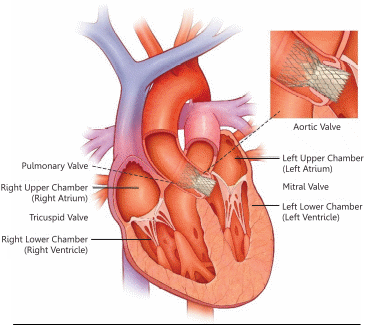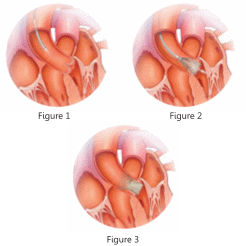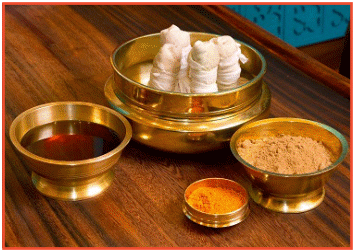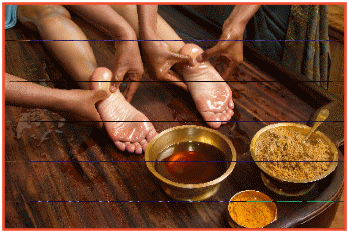
THE EXCHANGE | Newsletter April 2019
Medanta Welcomes Dr. Ashok Rajgopal

Dr. Ashok Rajgopal
Group Chairman - Institute of Musculoskeletal Disorders and Orthopaedics
Medanta - The Medicity welcomes back internationally acclaimed orthopaedic surgeon Dr. Ashok Rajgopal as
Group Chairman, Institute of Musculoskeletal Disorders and Orthopaedics. Dr. Rajgopal, is a prolific surgeon with over 30,000 total knee replacement surgeries to his credit. Additionally, he has performed more than 15,000 arthroscopic surgeries for ligament repairs and reconstructions. The ace surgeon has several firsts to his credit - the first to perform a bilateral procedure in India,
the first to use the Gender implant (designed especially for female patients), the first to perform total knee replacement using Patient Specific Instrumentation, and the first to perform minimally invasive total knee replacement in India.
Dr. Rajgopal is a designer surgeon and a member of the design team responsible for the design and development of the latest knee implant - The Persona Knee. He has successfully developed instruments for MIS total knee replacement surgery which have been patented by Zimmer and are used by knee replacement surgeons worldwide.
Dr. Naresh Trehan
Chairman and Managing Director – Medanta
With the appointment of Dr. Rajgopal, the focus is to further strengthen our capability and infrastructure to provide holistic orthopaedic treatment of international standards. Read More
Broad-basing Patient Access to Heart Treatment
A significant update in the standard care for patients has been brought about by a recent study conducted by Columbia University which has revealed that the TAVR or transcatheter aortic valve replacement therapy can be effectively used for younger and healthier patients as well. Done by a team of cardiologists and cardiac surgeons, this procedure, traditionally has been prescribed to patients who cannot tolerate surgery for heart valve replacement because of old age or co-morbid conditions. Medanta - The Medicity has successfully conducted the maximum number of surgeries using the TAVR procedure in India with 150 surgeries till date. And is one of the leaders in Asia. Like by-pass/CABG, the decision to conduct TAVR rests on each individual case, the stage of the disease and other parameters. It is an option to CABG and not a replacement. The fact that it has applicability to a larger population as well adds to treatment options and complements cardiology.


Transcatheter Aortic valve in position over diseased heart valve of failing surgical valve. (Figures 1 and 2) New Aortic heart valve (Fig 3)
TAVR is used for the replacement of the aortic valve, one of the four valves of the heart. This minimally invasive
non-surgical procedure involves a small incision in the groin (an artery in leg) where a catheter is inserted. The new valve is inserted through this incision, threaded up to the heart, and then secured in place. This results in faster recovery and lowers post-operative risks.
Dr. Naresh Trehan
Chairman and Managing Director – Medanta
Medanta strives to enhance patient access to the best possible treatment system benchmarked to global standards. The healthcare industry is now being driven by patient centric solutions powered by technology. It has resulted in improving patient care and management resulting in better patient engagement and satisfaction. The successful utilisation of the TAVR procedure complements our expertise in CABG and strengthens patient outcomes. It also illustrates our deep commitment to cutting-edge technology and patient-centric clinical excellence.
Dr. Praveen Chandra
Chairman - Interventional Cardiology, Heart Institute
Medanta - The Medicity
In India about 15 Lakh patients suffer from severe aortic valve stenosis (narrowing of the aortic valve) with typical symptoms of shortness of breath, chest pain and syncope. The TAVR treatment has statistically shown lower rates of heart failure hospitalization and strokes. The new findings about the effectiveness of this procedure among the youth, is likely to change the standard of care for most patients with failing aortic valve.
Medanta-AyurVAID - A Unique Therapeutic Approach

Centered around precision Ayurveda that complements modern medicine, Medanta AyurVAID is a one-of-its-kind therapeutic paradigm aided by highly qualified and experienced team of doctors and therapists. The synergistic approach ensures holistic treatment for effective root cause disease reversal and sustained wellbeing.
Ayurveda is aimed at preserving the health of healthy and, curing the diseased. Analysing every aspect of one's disease and wellbeing, wholesome treatment is prescribed at Medanta AyurVAID which reverses the disease and prevents its recurrence. It is a multi-specialty facility that offers comprehensive Kerala-style Ayurveda medical care for serious chronic ailments. The complete range of purvakarmas, pradhanakarmas, including all panchakarma procedures, are rendered by a team of highly trained Ayurveda caregivers under the supervision of a team of senior Ayurveda physicians. Along with the treatment of various sub-acute and chronic conditions including diabetes and other lifestyle disorders, arthritis and other musculoskeletal disorders, neuro-degenerative disorders, respiratory disorders, gynecological disorders, paediatric developmental disorders, Medanta AyurVAID also offers rehabilitation programs for stroke, cardiac, cancer and post-surgery patients. Integration with other specialties and co-managed care reinforces efficacy and quality of treatment.
All medicines are prepared in-house, and diet and lifestyle recommendations complementing the treatment are made. Every diagnosis and treatment is tailored to align with individual requirements to suit one's prakriti, vikriti, and response to treatment.
Case Study
A 64-year-old female patient was referred from Medanta Institute of Neurosciences in February 2019 with complaints of left side hemiparesis, mild facial palsy, pain and stiffness in the left upper and lower limb with loss of strength and tremors in the right upper and lower limb since six months. The patient was a known case of hypertension and had history of cerebrovascular accident in August 2018.
Considering the stage and chronicity of the paralysis, an optimized treatment plan was arrived at. The 28-day treatment plan included Rooksha Potali Sweda, Abhyangam and Nadi Swedam, Snigdha Choorna Pinda Swedam, Snigdha Patra Potali Pinda Swedam, Shashtika Shali Pinda Sweda followed by Virechanam, Basti therapy and oral medications to restore the strength of muscles as well as immunity.

The Snehanam and Swedanam treatment is known to improve blood supply, remove stiffness of joints due to the Vata dosha, open up the srotases (body channels), remove sluggishness of the body and provide strength. Panchakarma procedures like Virechana and Basti aid the clearing of srotases and their anti-inflammatory action further improves the strength and immunity of the patient.
At the time of admission, the patient complained of sleeplessness, loss of movement in upper limb with power

of 0/5 at both wrist and shoulder joint, loss of movement of left lower limb with muscle power of 2/5, pain in the left upper and lower limb with a VAS score 10, stiffness along with weakness on the left side and NIH Stroke Scale 10/62.
After 28 days of treatment, the patient reported improvement in all parameters including sleep, movement in left upper limb with power of 2/5 at shoulder joint, 1/5 at wrist joint, 4/5 in the left lower limb, reduced pain on left side with VAS score 1, reduced stiffness and weakness with NIH Stroke Scale 4/62.
Medanta AyurVAID's Comprehensive Stroke Rehabilitation Program is a sub-acute and chronic rehabilitation program for stroke patients. It is built on classical Ayurveda treatments that address the etio-pathogenesis of the cerebrovascular accident (CVA) or stroke, the attendant risk factors and manifestations.
At Medanta AyurVAID, therapies are integrated in synergy with functional or occupational therapy inputs to maximize benefit to the patient for a wide spectrum of disorders. Specialized integrated protocols to classify cases, assess severity and conjoint risk factors are drawn up alongside a thorough medical management plan. This results in customized rehabilitation for each patient, including internal medication, Ayurveda therapies, functional therapies as well as dietary and lifestyle prescriptions.






